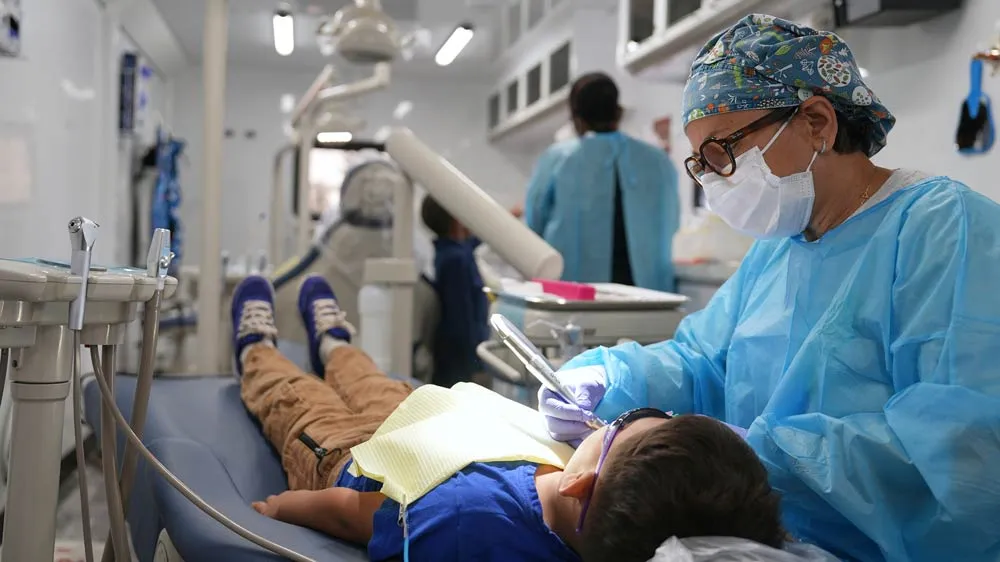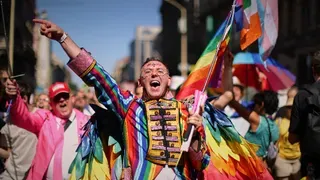December 30, 2009
Mexico City enacts region's 1st gay marriage law
Kilian Melloy READ TIME: 3 MIN.
Mexico City enacted Latin America's first law recognizing gay marriage Tuesday and said it hopes to attract same-sex couples from around the world to wed.
The law, approved by city legislators on Dec. 21, was published in Mexico City's official register Tuesday and will take effect in March. It will allow same-sex couples to adopt children and municipal officials say it will make Mexico's capital a "vanguard city" - and attract extra tourism revenues.
"Mexico City will become a center, where (gay) people from all over the world will be able to come and have their wedding, and then spend their honeymoon here," said Alejandro Rojas, the city tourism secretary.
"We are already in talks with some travel agencies that are planning to offer package tours that include flights, hotels, guides, and everything they need for the wedding, like banquets," said Rojas. "We are going to become a city on a par with Venice or San Francisco" - the current leader in the gay travel market segment.
The annual economic impact of lesbian, gay, bisexual and transgender travelers is about $70 billion in the United States alone, according to Community Marketing Inc., a tourism research company that specializes in gay and lesbian consumers.
Gay marriages of foreigners in Mexico City would presumably only be recognized by countries and states that also have legalized same-sex marriage. An exception is New York State, which doesn't allow same-sex marriages but which recognizes those which were performed legally in other jurisdictions.
An Argentine couple participated in Latin America's first gay wedding on Monday, but interpretations vary on whether the law allows such unions in Argentina, and the question is now before its supreme court.
Argentina's Constitution is silent on whether marriage must be between a man and a woman, effectively leaving the matter to provincial officials, who approved Monday's wedding. But a law specifically legalizing gay marriage has been stalled in its Congress since October.
But even as Mexico City officials celebrated enactment of the law, others vowed to stop the marriages from taking place.
In a Sunday Mass, Roman Catholic Cardinal Norberto Rivera said "the essence of the family is being attacked by making homosexual unions equivalent to matrimony between a man and a woman."
Armando Martinez, the president of a local Catholic lawyers' group, said he was planning demonstrations against same-sex marriages, and will also support legal efforts to overturn the Mexico City law.
"We are going to carry out exhaustive campaigns at the offices of the justices of the peace in the city, using acts of peaceful civil resistance to prevent homosexual couples from being married," Martinez said.
Mexico City's law allows same-sex couples to adopt children, apply for bank loans together, inherit wealth and be included in the insurance policies of their spouse, rights they were denied under civil unions allowed in the city.
The conservative Nation Action Party of President Felipe Calderon has vowed to challenge the law in the courts. However, homosexuality is increasingly accepted in Mexico, with gay couples openly holding hands in parts of the capital and the annual gay pride parade drawing tens of thousands of participants.
Only seven countries in the world allow gay marriages: Canada, Spain, South Africa, Sweden, Norway, the Netherlands and Belgium. U.S. states that permit same-sex marriage are Iowa, Massachusetts, Vermont, Connecticut and New Hampshire.
Latin America also has become and increasingly tolerant place for gays.
Same-sex civil unions have been legalized in Uruguay, Buenos Aires, and some states in Mexico and Brazil, but marriage generally carries broader rights.
In Argentina, Latin America's first gay newlyweds - Alex Freyre and Jose Maria Di Bello - were eager to relax and honeymoon.
"We want to rest now. It was a time during which we suffered a lot of humiliations," Freyre told The Associated Press after returning to Buenos Aires from Ushuaia, the world's southernmost city, where the couple were wed.
The men tried to get married in Argentina's capital but city officials, who had earlier said the ceremony could proceed, refused to wed them on Dec. 1, citing conflicting judicial rulings.
___
Associated Press Writer Almudena Calatrava contributed to this report from Buenos Aires.
Kilian Melloy serves as EDGE Media Network's Associate Arts Editor and Staff Contributor. His professional memberships include the National Lesbian & Gay Journalists Association, the Boston Online Film Critics Association, The Gay and Lesbian Entertainment Critics Association, and the Boston Theater Critics Association's Elliot Norton Awards Committee.







